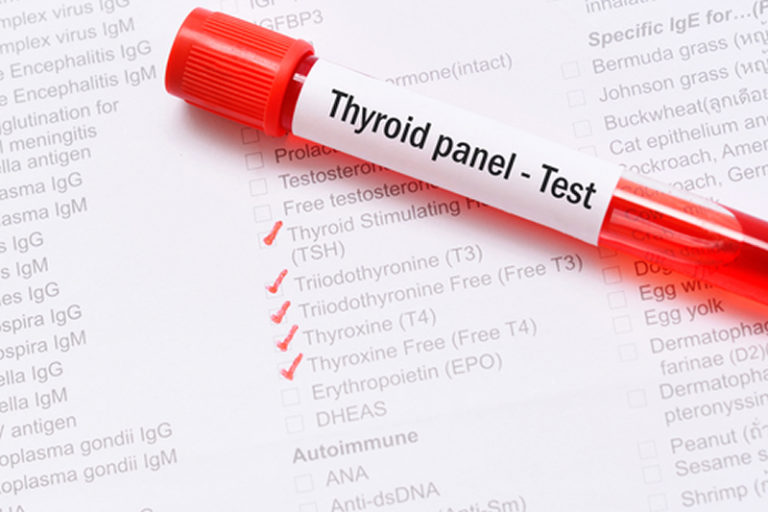
Blood Test for Heart Attack Enzyme: In the realm of medical diagnostics, advancements continue to revolutionize the way we detect and treat various conditions. One such breakthrough is the development of a blood test for a heart attack enzyme. This innovative test has the potential to significantly enhance the accuracy and efficiency of diagnosing heart attacks, enabling prompt medical intervention and improved patient outcomes. In this article, we will explore the significance of this blood test, its underlying mechanism, and its implications for the future of cardiovascular healthcare.
The Importance of Early Heart Attack Detection
Heart attacks, also known as myocardial infarctions, are life-threatening events that require immediate medical attention. Timely diagnosis is critical in reducing the damage to the heart muscle and increasing the chances of survival. Traditional diagnostic methods, such as electrocardiograms (ECGs) and imaging techniques, provide valuable information but may not always deliver accurate results in the early stages of a heart attack. This is where the blood test for the heart attack enzyme comes into play.
Understanding Heart Attacks: Causes and Symptoms
Before delving into the details of the blood test, it is essential to comprehend the causes and symptoms of heart attacks. Typically, heart attacks occur when there is a blockage in the coronary arteries, which supply blood and oxygen to the heart muscle. The blockage, often caused by the accumulation of plaque, restricts blood flow, leading to the death of heart tissue. Symptoms of a heart attack include chest pain or discomfort, shortness of breath, nausea, and lightheadedness.
Where To Get Tested?
Say Goodbye To Waiting Rooms And Long Lines. Speedy Sticks offers at-home testing.
The Role of Enzymes in Diagnosing Heart Attacks
Enzymes play a vital role in various physiological processes within the body, including heart health. During a heart attack, specific enzymes are released into the bloodstream as a result of heart muscle damage. These enzymes act as markers, indicating the occurrence of a heart attack. In particular, one enzyme called troponin has proven to be a reliable indicator of heart muscle injury.
The Breakthrough: Introducing the Blood Test for the Heart Attack Enzyme
The advent of the blood test for the heart attack enzyme represents a significant breakthrough in cardiovascular diagnostics. This test detects the presence and levels of troponin in the blood, allowing healthcare professionals to accurately diagnose a heart attack. By measuring the enzyme’s concentration, medical practitioners can determine the extent of heart muscle damage and devise appropriate treatment strategies.
How the Blood Test Works: Mechanism and Reliability
The blood test for the heart attack enzyme involves a simple procedure. A blood sample is obtained from the patient and sent to the laboratory for analysis. The sample is tested for the presence of troponin, and the concentration of the enzyme is measured. The results are then interpreted by healthcare professionals, considering specific thresholds for diagnosis. The test’s reliability lies in its ability to detect even minimal levels of troponin, enabling early detection of heart attacks.
Advantages and Limitations of the Blood Test
The blood test for the heart attack enzyme offers several advantages over traditional diagnostic methods. Firstly, it is highly sensitive and can detect heart attacks even in their early stages. Secondly, it provides faster results, enabling prompt medical intervention. Additionally, this test has a higher accuracy rate, reducing the chances of misdiagnosis. However, it is essential to note that certain factors, such as kidney disease, can affect troponin levels, potentially leading to false positives or negatives.
The Impact on Patient Care: Timely Interventions and Improved Outcomes

The introduction of the blood test for the heart attack enzyme has a profound impact on patient care. With accurate and timely diagnosis, healthcare professionals can initiate appropriate interventions promptly. This early intervention can prevent further damage to the heart muscle, potentially saving lives and improving patient outcomes. Moreover, it reduces the need for prolonged hospital stays and invasive procedures, leading to a more efficient and cost-effective healthcare system.
Future Implications: Advancements and Potential Developments

As medical research continues to advance, the blood test for the heart attack enzyme holds promise for further developments. Ongoing studies aim to refine the test’s sensitivity, specificity, and predictive value. Researchers are also exploring the possibility of incorporating additional biomarkers to enhance diagnostic accuracy. These advancements may revolutionize cardiovascular diagnostics, leading to more personalized and effective treatment approaches.
Is The Blood Test For the Heart Attack Enzyme Available to Everyone?
Yes, the blood test for the heart attack enzyme is available in medical facilities worldwide. However, its availability may vary depending on the healthcare provider and the region.
How Long Does it Take to Receive The Results of The Blood Test?
Say Goodbye To Waiting Rooms And Long Lines. Speedy Sticks offers at-home testing.
Typically, the results of the blood test for the heart attack enzyme are available within a few hours. However, it is best to consult with your healthcare provider for specific information regarding turnaround times.
Can The Blood Test for The Heart Attack Enzyme Detect Previous Heart Attacks?
Yes, the blood test can detect previous heart attacks by assessing the levels of troponin in the blood. Elevated troponin levels indicate heart muscle damage, even if the heart attack occurred in the past.
Are There Any Risks Associated With The Blood Test?
The blood test for the heart attack enzyme is considered safe and minimally invasive. However, as with any medical procedure involving blood collection, there may be a slight risk of bruising, infection, or discomfort at the site of the blood draw.
Can The Blood Test Provide False Results?
While the blood test for the heart attack enzyme is highly accurate, certain factors can influence troponin levels, potentially leading to false positives or negatives. Factors such as kidney disease or skeletal muscle injury should be considered when interpreting the results.
Conclusion
The blood test for the heart attack enzyme marks a significant milestone in the field of cardiovascular diagnostics. By accurately detecting heart attacks and assessing the extent of heart muscle damage, this test empowers healthcare professionals to make informed decisions and provide timely interventions. With its advantages of sensitivity, speed, and accuracy, this breakthrough test has the potential to save lives and improve patient outcomes. The future holds even greater promise as research and technological advancements continue to enhance cardiovascular healthcare.
Say Goodbye To Waiting Rooms And Long Lines. Speedy Sticks offers at-home testing.








